In a world where technology evolves faster than a caffeinated squirrel, it’s crucial for DevOps professionals to stay ahead of the game. Enter Python. This powerhouse of a programming language is not only popular but also essential for anyone navigating the hustle and bustle of DevOps. Whether you’re orchestrating complex system deployments or automating menial tasks, Python has your back. But what makes it such a game-changer in the DevOps arena? Let’s immerse and explore the magic that this coding language can bring to operations.
Table of Contents
ToggleThe Importance Of Python In DevOps

Python has carved a niche for itself in the tech industry, especially in the realm of DevOps. Why is that the case? For starters, its versatility allows teams to quickly carry out solutions across various stages of software development and operations. From scripting to automation, Python excels in breaking down complex tasks into manageable scripts that can save teams hours of work.
Also, Python’s readability makes it an ideal choice for teams looking to collaborate. When everyone can easily understand the codebase, developers and operations teams can communicate effectively, reducing friction and improving efficiency. Also, Python supports powerful frameworks and libraries that enhance its functionality, making it a Swiss army knife for DevOps professionals.
Besides, the vast community behind Python means that anyone can tap into a wealth of resources and libraries. From tutorials to forums, help is just a click away. With continuous improvements and updates, Python remains relevant in the rapidly changing landscape of technology, securing its position as a go-to language in DevOps.
Key Python Libraries For DevOps
When it comes to liberating the full potential of Python in DevOps, harnessing the right libraries is paramount. Here are some essential libraries that every DevOps professional should consider:
- Fabric: This library simplifies application deployment and systems administration. With Fabric, users can execute commands on remote servers with ease, allowing for streamlined management across multiple systems.
- Ansible: While often viewed as a separate automation tool, Ansible is built with Python. It enables infrastructure as code, allowing teams to manage server configuration and deployment effortlessly.
- Paramiko: This library is a must-have for handling SSH connections. It allows secure connections to remote machines and is key to automating tasks that involve server access.
- Requests: For those who interact with APIs (and let’s be honest, who doesn’t?), the Requests library simplifies the process, making it easy to send HTTP requests and process the responses.
- Pandas: Data is the lifeblood of any DevOps operation. Pandas allows for easy manipulation and analysis of data, which is invaluable for monitoring and improving systems.
By leveraging these libraries, DevOps teams can streamline processes, enhance security, and gather insights that directly improve operational efficiency.
Automating Infrastructure Management With Python
Managing infrastructure can often feel like herding cats, but Python offers an antidote to this chaos. Automation is one of the core principles of DevOps, and Python shines in this area. With libraries like Boto3 for AWS services or Azure SDK for Python, managing cloud resources becomes not only straightforward but efficient.
Using Python scripts, teams can provision, configure, and manage infrastructure automatically. For instance, by writing scripts that interact with cloud APIs, they can automate repetitive tasks such as scaling, backups, or resource allocation. This kind of automation reduces human error, cuts costs, and frees up valuable time for DevOps teams to focus on more strategic initiatives.
Also, with the integration of tools like Terraform alongside Python scripts, infrastructure as code (IaC) becomes even more powerful, allowing teams to define their entire infrastructure in code and manage it through version control.
Continuous Integration And Continuous Deployment (CI/CD) With Python
The backbone of any modern software development lifecycle is CI/CD, and Python plays a pivotal role here. In a CI/CD pipeline, automation is key, and Python can help in a multitude of ways.
For instance, Python scripts can be utilized to automate testing, ensuring that every piece of code is evaluated before deployment. Libraries such as pytest or unittest allow for comprehensive testing setups, making it easy to catch bugs early in the development process.
Besides, tools like Jenkins can be enhanced with Python scripts that orchestrate the entire pipeline, from integration testing to deployment. Imagine pushing your latest feature from your local machine to production with minimal human intervention. It’s not just a dream, it’s achievable with Python-powered CI/CD pipelines, significantly speeding up the release cycle and improving software quality.
Monitoring And Logging With Python
In the fast-paced world of DevOps, monitoring and logging are crucial for maintaining system health and performance. Python excels in creating robust monitoring solutions that can alert teams to issues before they escalate.
With libraries like Loguru for logging or Prometheus client libraries for monitoring, Python can streamline how data is collected and analyzed. This allows teams to visualize trends and identify potential problems in real time. For instance, by developing scripts that collect performance metrics or error logs, teams can tailor alerts based on specific thresholds that matter to their operations.
Also, utilizing Grafana alongside these Python scripts transforms raw data into insightful dashboards, enabling teams to make informed decisions based on real-time information. The powerful combination of monitoring and logging in Python ensures that teams can act swiftly and efficiently.
Best Practices For Using Python In DevOps
While Python is a powerful tool for DevOps, employing best practices will maximize its utility. Here are some tips:
- Embrace Virtual Environments: Using tools like venv or pipenv can help isolate project dependencies, allowing different projects to coexist without conflicts.
- Write Modular Code: Breaking down code into reusable modules can enhance readability and maintainability. This facilitates easier collaboration among team members.
- Automate Testing: Regularly test scripts and applications to catch issues early. Integration of testing suites like pytest ensures quality control throughout development.
- Use Version Control: Leveraging Git not only tracks changes but also promotes collaborative development practices among team members.
- Keep Learning: The Python ecosystem evolves constantly. Staying updated with the latest libraries, frameworks, and best practices will keep your skills sharp.
Adhering to these practices will empower DevOps teams to unlock Python’s full potential, making workflows smoother and more efficient.



